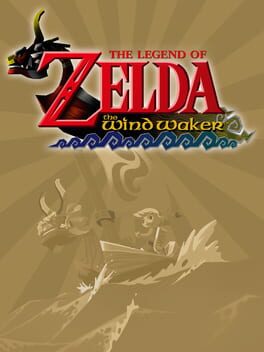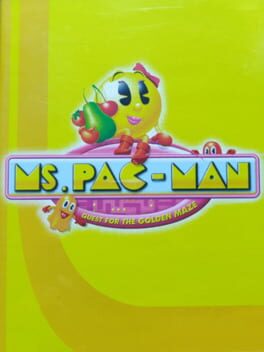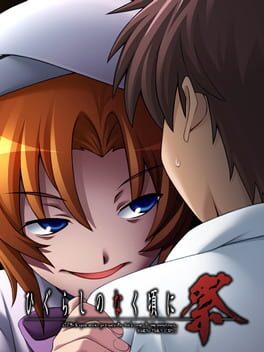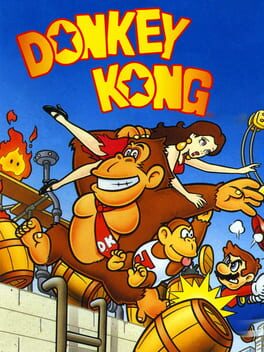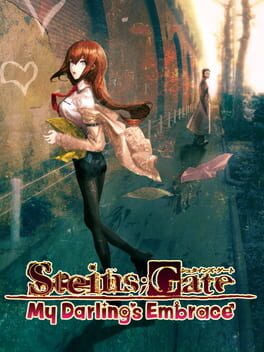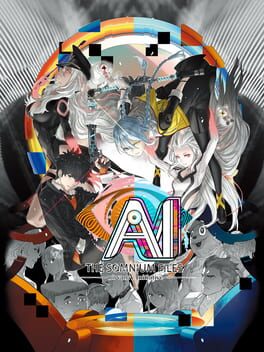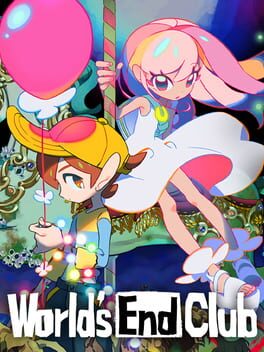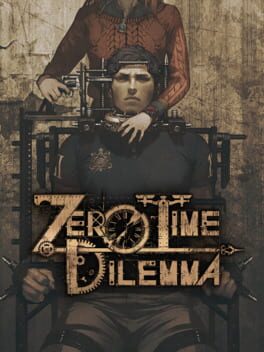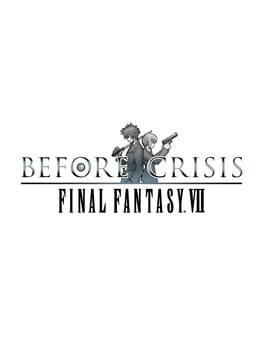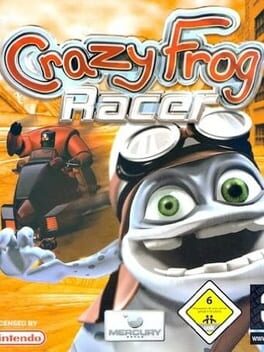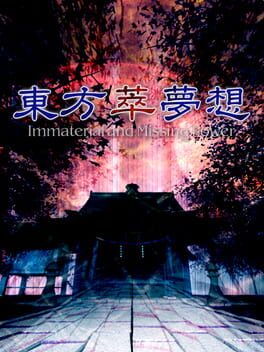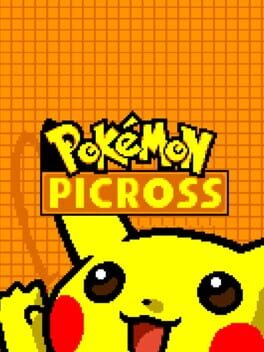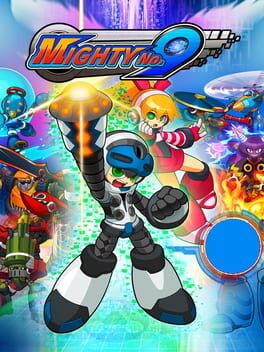RetroChocolate
I enjoyed quite a bit of this game, but there's also a lot that I just found super tedious and uninteresting. I really think Zelda games are a lot better when they open up and let the player go and do things in the order they want, and despite throwing the player into an ostensibly vast and open world, Wind Waker constantly goes out of it's way to do the exact opposite of that.
Outside of two dungeons that can be done in any order, pretty much everything in this game's main story is super streamlined. Given the structure of the game's world, this means that at points the game literally just has to have your boat go "lol nope, I'm not going that way" to make sure the player doesn't go off and do something they're not supposed to, which is super egregious in this type of game. And outside of the main quest, there isn't really a whole lot to do. Every quadrant has one island, and outside of the major story islands, pretty much every island has one or two puzzles and a treasure map attached to it, after which it pretty much becomes deadspace on the map. This arguably isn't any different from how a typical Zelda game's sidequest material would function, but with the more open structure of Wind Waker, it just makes the whole world feel so much more empty.
This problem is REALLY exacerbated by the game's main gimmick: sailing. Every one of this items is 2-3 minutes apart with very little interesting to do in between. You might encounter a copy-and-pasted enemy base, or maybe even an sea enemy that's more obnoxious to deal with than it's worth, but for the most part you pretty much just set the wind in the direction you need to go, and wait for the boat to get there. It gets super tedious, especially later on when you've already cleared most of the minor islands, and the fast travel isn't good enough to alleviate this.
There IS a lot of good stuff here though. Of course, the graphics are quite charming, and outside of the extremely over-exaggerated depth of field effect, most of it has aged quite well. The story is also probably the best of any Zelda game I've played so far, and the ending is especially good. But overall, I don't think it's quite as strong of a game as Ocarina of Time (and I'm not someone who's particularly fond of that game in the first place).
Outside of two dungeons that can be done in any order, pretty much everything in this game's main story is super streamlined. Given the structure of the game's world, this means that at points the game literally just has to have your boat go "lol nope, I'm not going that way" to make sure the player doesn't go off and do something they're not supposed to, which is super egregious in this type of game. And outside of the main quest, there isn't really a whole lot to do. Every quadrant has one island, and outside of the major story islands, pretty much every island has one or two puzzles and a treasure map attached to it, after which it pretty much becomes deadspace on the map. This arguably isn't any different from how a typical Zelda game's sidequest material would function, but with the more open structure of Wind Waker, it just makes the whole world feel so much more empty.
This problem is REALLY exacerbated by the game's main gimmick: sailing. Every one of this items is 2-3 minutes apart with very little interesting to do in between. You might encounter a copy-and-pasted enemy base, or maybe even an sea enemy that's more obnoxious to deal with than it's worth, but for the most part you pretty much just set the wind in the direction you need to go, and wait for the boat to get there. It gets super tedious, especially later on when you've already cleared most of the minor islands, and the fast travel isn't good enough to alleviate this.
There IS a lot of good stuff here though. Of course, the graphics are quite charming, and outside of the extremely over-exaggerated depth of field effect, most of it has aged quite well. The story is also probably the best of any Zelda game I've played so far, and the ending is especially good. But overall, I don't think it's quite as strong of a game as Ocarina of Time (and I'm not someone who's particularly fond of that game in the first place).
This game feels like a student project more than a commercially released game. The assets all feel super low budget (and not in the charming way), and the game basically only does the bare minimum required to be Pac-Man, with a few extremely undercooked mechanics added in an attempt to make it even slightly unique. I seriously wonder why Infogrames even bothered putting this out when they had already inherited the obviously superior Adventures in Time from Hasbro Interactive anyways.
Of course, it's still Pac-Man, and assuming you don't have literally any other way to play Pac-Man, it's fine... is what I would say if this game didn't have the worst sound design known to man. I seriously have no idea how you manage to fuck up the sound design for Pac-Man of all things. Every other game from the past 40 years lifts its sound straight from the original arcade machine, but Quest for the Golden Maze, with it's very high production value, has decided to grace us with completely new sound effects. Andsurprisingly they all sound like ass. This alone is a feat so impressive that I don't really think I could call this game anything other than "bad".
Of course, it's still Pac-Man, and assuming you don't have literally any other way to play Pac-Man, it's fine... is what I would say if this game didn't have the worst sound design known to man. I seriously have no idea how you manage to fuck up the sound design for Pac-Man of all things. Every other game from the past 40 years lifts its sound straight from the original arcade machine, but Quest for the Golden Maze, with it's very high production value, has decided to grace us with completely new sound effects. And
This feels like something that would be spit out by an AI if you fed it the script of Higurashi and asked it to write a new chapter. Nothing unique or interesting, just story beats from other chapters strung together into something that vaguely resembles a new story. And yet it's all written by a human; a work that truly demonstrates the ability of humans to write something as soulless and vapid as that regurgitated by an AI.
The premise of this being a sort of "worst case scenario" feels like it should at least be interesting in some way, but it feels more as if the writer has accidentally happened upon this through sheer unoriginality causing them to combine every bad thing that happens in the other chapters together, as opposed to any actual attempt at creating an original premise.
It's all so depressing. Practically the only reason anyone would even bother to read this in the first place is out of a desperate attempt to grasp for more Higurashi, to reexperience those halcyon days. This is something that GouSotsu deliberately plays into, to great effect, but here it's all an accident. The writing doesn't play into the idea that it's SUPPOSED to be inane, it's just truly as insipid as the readers desire to experience it in the first place.
A fascinating work, in all of the wrong ways.
The premise of this being a sort of "worst case scenario" feels like it should at least be interesting in some way, but it feels more as if the writer has accidentally happened upon this through sheer unoriginality causing them to combine every bad thing that happens in the other chapters together, as opposed to any actual attempt at creating an original premise.
It's all so depressing. Practically the only reason anyone would even bother to read this in the first place is out of a desperate attempt to grasp for more Higurashi, to reexperience those halcyon days. This is something that GouSotsu deliberately plays into, to great effect, but here it's all an accident. The writing doesn't play into the idea that it's SUPPOSED to be inane, it's just truly as insipid as the readers desire to experience it in the first place.
A fascinating work, in all of the wrong ways.
1994
Neat game, with some cool use of the Super Game Boy, but goes on a bit too long.
The game is ostensibly a puzzle platformer, but the mechanics are pretty loose, so most of the levels end up requiring basically zero thought process, and are more tedious than challenging (especially as the game goes on).
Definitely a game that's better played in shorter sessions, which feels really at odds with this game being half a Super Game Boy tech demo.
The game is ostensibly a puzzle platformer, but the mechanics are pretty loose, so most of the levels end up requiring basically zero thought process, and are more tedious than challenging (especially as the game goes on).
Definitely a game that's better played in shorter sessions, which feels really at odds with this game being half a Super Game Boy tech demo.
As someone who likes spouting inflammatory opinions about popular media, my immediate urge upon finishing this is to say My Darling's Embrace is "Better than Steins;Gate" and I wouldn't really even be lying to say that. Steins;Gate's characters were one of its stronger aspects to begin with and My Darling's Embrace plays really well into that. Even if it doesn't hit the highs of the original, it's a lot more consistent throughout.
Really solid game overall, but it also kind of shows how much Date was an integral part of what made the first game so good.
Ryuki and Tama feel like they're intended to be a role reversal of Date and Aiba, but the dynamic doesn't really work as well when the "straight man", so to speak, is the one with the actual agency. It tends to make a lot of his scenes feel a bit more dull comparatively. The game does do some decent things with his character, but it's all mostly relegated to Mizuki's side, rather than when he's actually the protagonist.
Mizuki on the other hand is thoroughly entertaining, just as she was in the first game, though I don't think her dynamic with Aiba is quite as strong as his.
While the story isn't as strong from scene to scene, I did feel the overall story was a bit stronger and more interesting, but even so, I would still say I prefer the first game.
Ryuki and Tama feel like they're intended to be a role reversal of Date and Aiba, but the dynamic doesn't really work as well when the "straight man", so to speak, is the one with the actual agency. It tends to make a lot of his scenes feel a bit more dull comparatively. The game does do some decent things with his character, but it's all mostly relegated to Mizuki's side, rather than when he's actually the protagonist.
Mizuki on the other hand is thoroughly entertaining, just as she was in the first game, though I don't think her dynamic with Aiba is quite as strong as his.
While the story isn't as strong from scene to scene, I did feel the overall story was a bit stronger and more interesting, but even so, I would still say I prefer the first game.
2020
Kodaka, Uchikoshi, and Nakazawa, coming together to make a game marketed on "DANGAN RONPA MEETS ZERO ESCAPE" and then making a game that is less derivative of their previous works than anything they'd made in the past decade is honestly kind of incredible.
The games characters and tone give it a really unique and fun feel from the other games by these authors. This often gets labelled as being "Danganronpa/Zero Escape but toned down for kids" but I think people are really mistaking the tone of the game for it's target audience. The game might lack the violence of Danganronpa and Zero Escape, but it certainly never feels like the games story has been "dumbed down" for a younger audience.
The whole "Oh no, we're stuck in an underwater amusement park and being forced to play a death game" premise sounds like such a parody version of Uchikoshi's works that it's no surprise that the game isn't really about that at all. The game quickly ditches the "trapped in a place" and "forced to play a death game" premise the three creators are known for to do practically the opposite: a group of characters working together to journey across Japan.
That's not to say it's not COMPLETELY free from Nakazawa and Uchikoshi's reuse of ideas. Aside from the obvious thing near the end that Nakazawa does literally every game (and Uchikoshi uses a toned-down version of in all of the Zero Escape games), there's still a few moments here and there (particularly a major plot twist that is reused from, weirdly enough, Root Double of all things), but it never feels nearly as detrimental to the story as it is in something like Virtue's Last Reward.
The major issue with the game is, of course, the gameplay. As you would expect from Uchikoshi and Nakazawa, the way the player interacts with the gameplay plays directly into the games story elements, so I certainly wouldn't say something as silly as "they should've just made it a straight visual novel", but the problem is that the gameplay is ONLY interesting in how it relates to the story. The actual gameplay itself rarely has anything interesting going on. It all just feels so simple and afraid to do anything mechanically intensive.
The reason the game is this way all clicked for me as soon as I found out this game was originally released for iOS. Trying to play a mechanically intensive platforming game with shitty smartphone touchscreen controls might be one of the most terrible ideas ever. It's just incredibly unfortunate that the entire game is brought down by the fact that it was developed for a shitty platform that barely anyone actually played the game on anyways. Overall, the gameplay certainly isn't unbearable though, and the primary focus is still on the visual novel segments.
The games characters and tone give it a really unique and fun feel from the other games by these authors. This often gets labelled as being "Danganronpa/Zero Escape but toned down for kids" but I think people are really mistaking the tone of the game for it's target audience. The game might lack the violence of Danganronpa and Zero Escape, but it certainly never feels like the games story has been "dumbed down" for a younger audience.
The whole "Oh no, we're stuck in an underwater amusement park and being forced to play a death game" premise sounds like such a parody version of Uchikoshi's works that it's no surprise that the game isn't really about that at all. The game quickly ditches the "trapped in a place" and "forced to play a death game" premise the three creators are known for to do practically the opposite: a group of characters working together to journey across Japan.
That's not to say it's not COMPLETELY free from Nakazawa and Uchikoshi's reuse of ideas. Aside from the obvious thing near the end that Nakazawa does literally every game (and Uchikoshi uses a toned-down version of in all of the Zero Escape games), there's still a few moments here and there (particularly a major plot twist that is reused from, weirdly enough, Root Double of all things), but it never feels nearly as detrimental to the story as it is in something like Virtue's Last Reward.
The major issue with the game is, of course, the gameplay. As you would expect from Uchikoshi and Nakazawa, the way the player interacts with the gameplay plays directly into the games story elements, so I certainly wouldn't say something as silly as "they should've just made it a straight visual novel", but the problem is that the gameplay is ONLY interesting in how it relates to the story. The actual gameplay itself rarely has anything interesting going on. It all just feels so simple and afraid to do anything mechanically intensive.
The reason the game is this way all clicked for me as soon as I found out this game was originally released for iOS. Trying to play a mechanically intensive platforming game with shitty smartphone touchscreen controls might be one of the most terrible ideas ever. It's just incredibly unfortunate that the entire game is brought down by the fact that it was developed for a shitty platform that barely anyone actually played the game on anyways. Overall, the gameplay certainly isn't unbearable though, and the primary focus is still on the visual novel segments.
After playing VLR and thinking "Hmmm, that was good, but too much of this is just rehashing Ever17... Maybe Uchikoshi IS a hack..." this game constantly had me going "WE'RE SO BACK."
This game really feels like Uchikoshi going completely unfiltered. Picking up where VLR left off, this game continues to take ideas from the Inifinity Trilogy's next entry, Remember11, but this time it doesn't feel as rehashed. It probably helps a lot that Remember11 is an unfinished game that doesn't really get the chance to delve into a lot of it's more interesting ideas, giving this game a lot more to actually say than it's predecessor.
The presentation of this game DOES suffer a lot from the games overly ambitious presentation that it clearly doesn't have the budget to execute, but the poor animations do have a certain campy charm to them anyways. The game would still definitely benefit from a complete makeover, but it's unlikely to happen given the game's general perception (and no, the ps4 version that gives the game shitty "realistic" lighting doesn't count. It even somehow manages to make the game look worse).
//SPOILERS PAST THIS POINT
*
*
*
The only real complaint I have (besides the animations) is that I wish Uchikoshi was still the type of writer to LITERALLY make the player the "villain" of the game, but I guess that was probably more of Nakazawa's thing. The Zero Escape games still incorporate a lot of themes with very obvious meta readings, but Uchikoshi tends to avoid making the player an ACTUAL part of the story like is done in the Infinity trilogy, whereas Nakazawa's later works continue to implement the idea that the player is an active part of the story, even when it's extremely minor to the point of barely being brought up. Delta being a stand-in for the player works to a certain degree, but I do think it would've been better to do away with him entirely and make it "The player themselves is the one driving the story forward."
This game really feels like Uchikoshi going completely unfiltered. Picking up where VLR left off, this game continues to take ideas from the Inifinity Trilogy's next entry, Remember11, but this time it doesn't feel as rehashed. It probably helps a lot that Remember11 is an unfinished game that doesn't really get the chance to delve into a lot of it's more interesting ideas, giving this game a lot more to actually say than it's predecessor.
The presentation of this game DOES suffer a lot from the games overly ambitious presentation that it clearly doesn't have the budget to execute, but the poor animations do have a certain campy charm to them anyways. The game would still definitely benefit from a complete makeover, but it's unlikely to happen given the game's general perception (and no, the ps4 version that gives the game shitty "realistic" lighting doesn't count. It even somehow manages to make the game look worse).
//SPOILERS PAST THIS POINT
*
*
*
The only real complaint I have (besides the animations) is that I wish Uchikoshi was still the type of writer to LITERALLY make the player the "villain" of the game, but I guess that was probably more of Nakazawa's thing. The Zero Escape games still incorporate a lot of themes with very obvious meta readings, but Uchikoshi tends to avoid making the player an ACTUAL part of the story like is done in the Infinity trilogy, whereas Nakazawa's later works continue to implement the idea that the player is an active part of the story, even when it's extremely minor to the point of barely being brought up. Delta being a stand-in for the player works to a certain degree, but I do think it would've been better to do away with him entirely and make it "The player themselves is the one driving the story forward."
1994
Went into this expecting it to be good but overrated, and was honestly blown away. Even having quite enjoyed most of the previous games, VI is just a huge step up from the previous games in almost every way.
Right from the start, the presentation is just amazing. The cutscenes feel so much more visually involved than any of the previous games (especially the ones that take place in-battle). The map graphics have also been upgraded, now using the same detailed character graphics as the battles instead of simplified ones like in previous games. It's not perfect (there's particularly quite a bit of overuse of Mode 7 graphics), but it's a huge step forward from anything before it in the franchise.
VI's story is also better than anything before it. The characters and world have so much more depth than anything that came before it (even if some of the characters don't get quite as much time as they should due to the enormous cast), and the story is a huge step up from IV (which I honestly think was a slight step down from II, the previous story focused game).
Speaking of IV, the gameplay here is largely based on that game, but it's been greatly improved from there. IV's choice to give characters set abilities honestly takes away a lot of the customization and strategy of the party set-up compared to III, and it doesn't really add as much to the characters as it's probably intended to. While V went back to using III's Job System, VI chooses to go with IV's system, with a new major edition: the Esper System. The Esper System honestly fixes a lot of the biggest problems with IV's gameplay by introducing a way in which the characters can be shaped and customized on top of their set abilities. It's still not quite as good as the Job System, but it accomplishes what IV's gameplay was trying to without completely sacrificing party customization and strategy.
This game is honestly just great. It's a huge step forward for the franchise, and it also contains the basis of a lot of the ideas and concepts that I really liked in Xenogears, which I hope will continue to be expanded and built on by the future Final Fantasy games.
Right from the start, the presentation is just amazing. The cutscenes feel so much more visually involved than any of the previous games (especially the ones that take place in-battle). The map graphics have also been upgraded, now using the same detailed character graphics as the battles instead of simplified ones like in previous games. It's not perfect (there's particularly quite a bit of overuse of Mode 7 graphics), but it's a huge step forward from anything before it in the franchise.
VI's story is also better than anything before it. The characters and world have so much more depth than anything that came before it (even if some of the characters don't get quite as much time as they should due to the enormous cast), and the story is a huge step up from IV (which I honestly think was a slight step down from II, the previous story focused game).
Speaking of IV, the gameplay here is largely based on that game, but it's been greatly improved from there. IV's choice to give characters set abilities honestly takes away a lot of the customization and strategy of the party set-up compared to III, and it doesn't really add as much to the characters as it's probably intended to. While V went back to using III's Job System, VI chooses to go with IV's system, with a new major edition: the Esper System. The Esper System honestly fixes a lot of the biggest problems with IV's gameplay by introducing a way in which the characters can be shaped and customized on top of their set abilities. It's still not quite as good as the Job System, but it accomplishes what IV's gameplay was trying to without completely sacrificing party customization and strategy.
This game is honestly just great. It's a huge step forward for the franchise, and it also contains the basis of a lot of the ideas and concepts that I really liked in Xenogears, which I hope will continue to be expanded and built on by the future Final Fantasy games.
2006
2023
The mood set and the visuals are nice, and there's some cool technical stuff, but god, the mythos set up by this is just so silly that when the vibes aren't unsettling you, it just kinda feels corny.
As a map on it's own, it also makes some questionable design choices. The choice to be cryptic is fine and obviously a part of the vibe it's going for, but a lot of it feels too cryptic to solve the good ending on it's own, while simultaneously losing a lot of the appeal with a guide.
The enemy spam also gets really bad near the end of the map. Like, the gas station sequence is fucking atrocious. Who the hell looked at nuts.wad and said "But what if it was dark and you couldn't see?"
As a map on it's own, it also makes some questionable design choices. The choice to be cryptic is fine and obviously a part of the vibe it's going for, but a lot of it feels too cryptic to solve the good ending on it's own, while simultaneously losing a lot of the appeal with a guide.
The enemy spam also gets really bad near the end of the map. Like, the gas station sequence is fucking atrocious. Who the hell looked at nuts.wad and said "But what if it was dark and you couldn't see?"
Fun game that's pretty easy to play for a beginner (as far as fighting games go). The way the spell card system is implemented in story mode is really cool, even if a few of the CPUs get a bit spammy with them.
Also Pandemonium is a really cool final attack. Destroying the UI and leaving the player not knowing how much health Suika has left as they slowly chip away at her health makes the last part of the fight really tense.
Also Pandemonium is a really cool final attack. Destroying the UI and leaving the player not knowing how much health Suika has left as they slowly chip away at her health makes the last part of the fight really tense.
TBD
Yeah I can see why they didn't release this. It has a neat concept, but it has the same problem as the other GB Picross games where the tiny screen prevents it from having larger boards, except this one feels like it's going out of it's way to be pathetically easy.
The fact that the boards aren't even actually the pictures but only "revealing" the pictures below them also just makes this feel incredibly lame.
The fact that the boards aren't even actually the pictures but only "revealing" the pictures below them also just makes this feel incredibly lame.
2016
You know, if you can get past the awful graphics and the awful animations and the awful level design and the infinite air dash that ruins any platforming and the random obstacles and attacks that are instant kills for no reason and the awful weapons and the awful story and the awful translation and the awful marketing and the problematic history and the fact that Inafune is a hack and the fact that this game definitely wasn't finished then this game is actually pretty mid.
